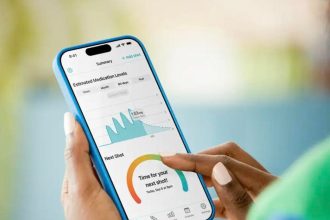Mentor, Business Council and CEO at Carlos Busch Education.
In my day-to-day conversations with various executives, we periodically talk about how to better use our time while balancing an excess of tasks, desires and so on. Making the most of our time, whether in a professional or a personal context, is always a continuous pursuit. This applies to a football player during a game, an executive during their goal period, an assistant in their daily tasks, a professional waiting for the bus, or a child at school.
“Time is a physical quantity present not only in daily life but also in all scientific areas and fields, and effective people know that time is the limiting factor of businesses.” This statement, which deeply resonated with me, was shared by a friend and high-performance mentor. Many other thinkers also emphasize that time in our lives is finite and often scarce, underscoring the importance of making the most of it as a mark of intelligence.
Many of our societal developments have involved at least some focus on optimizing time. But until more recently, innovations that optimized time were primarily directed at businesses, not consumers. Developments in production lines, transportation speed, logistics, energy, process automation, digitalization of relationships (as in banks), etc. were fundamentally focused on giving companies the ability to grow, reduce costs and sometimes even improve the consumer’s experience.
The consumer, on the other hand, was considered an opportunistic or even non-opportunistic supporting actor for these benefits. If we look at the evolution of the financial sector over the last 25 years, we see many improvements that have been delivered to the consumer, such as “taking” statements from a machine, withdrawing money and paying bills without interacting with attendants. But in reality, these improvements were created to give banks greater productivity, as their focus was on reducing the need for attendants, average service time, etc. and thus, as a consequence and with luck, providing better service to account holders. But the initial premise was to optimize time for businesses.
In recent years, however, some of these consumer-benefitting elements have ceased to be variables and have become constants. Time-savings is still fundamental, but now, both the consumer and the company need to be accounted for. Whoever can return more or better time to their consumers is often the one who stands out in the market.
In the case of banks, we now have financial companies that use technology focused on the consumer and on optimizing their time, and this has become the ideal model in the eyes of consumers. Uber, digital photos and subscriptions are just some of the hundreds of examples I could cite here of companies that delivered technological innovation, but with a fundamental focus on delivering the best experience to people—including a sense that their time was optimized. Companies that can deliver their product or service anytime, anywhere, show that technology and convenience translate into better use of time, and thus return unproductive time to people.
Believe it or not, Brazil is still one of the few countries in the world where Uber has an option for intermediate stops on a trip. Many ride-hailing passengers need to stop at a convenience store, pharmacy or mini-market to buy something specific. Thus, companies like Cargo emerged, putting a mini-store inside the Uber vehicle and eliminating the need for the consumer to make that stop. By allowing consumers to buy what they need in the car itself, Cargo is returning their time to them. New pay-per-use transportation methods are also good examples because taking an immediately available scooter or bike available for rent is generally simpler, faster and more practical than waiting for another means of transportation, especially if your destination is within the same area of a city. They are not necessarily cheaper, but they are an example of offering the consumer a more optimized use of their time.
Companies that seek e-commerce solutions and service on any channel are no longer primarily looking to do more with less, but rather to make the best use of people’s time and optimize their business variables. Do you think that selling online is common because it is better for companies? Investing in having a unique view of the customer—such as their buying profile, desires and interests—in order to deliver the most suitable message in the fastest amount of time is no longer optional but rather a consumer expectation. Today, consumers have the freedom to choose the value of the business variable, so whoever is delivering the best time-savings and experience to consumers is more likely to be their first choice.
One of the fundamental questions our society seeks to answer is much the same today as it has been in the past: how to make better use of our time. Technological advances have become our main ally in this pursuit, but the biggest change, in my opinion, is that consumers are now as much a part of the equation as companies. This is why I believe that whoever can meet consumer expectations with the highest value regarding time savings is likely to hold a major advantage.
Forbes Business Council is the foremost growth and networking organization for business owners and leaders. Do I qualify?
Read the full article here





